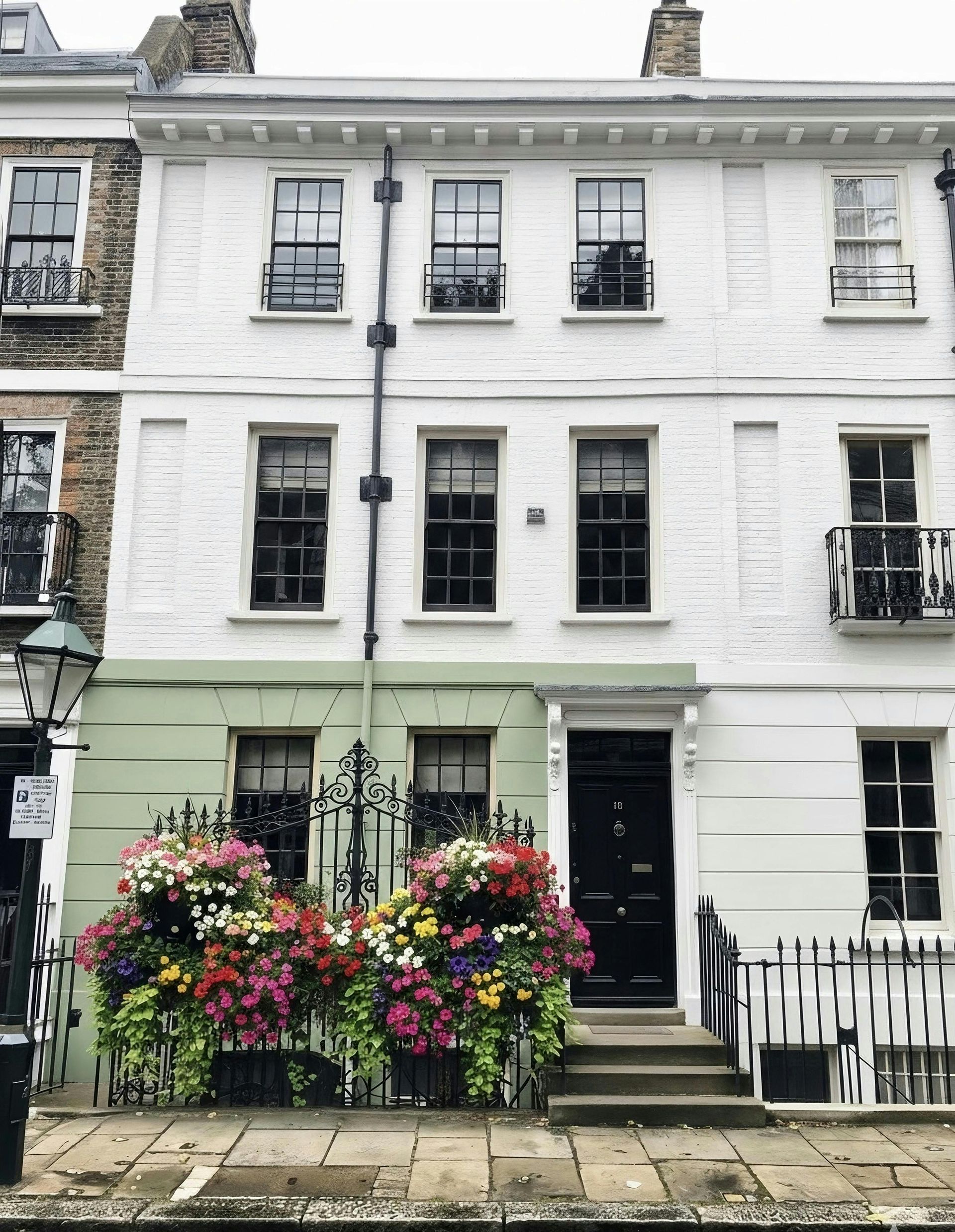Why Expat Mortgages Require Large Deposits and How to Prepare
What UK expats and overseas buyers need to know in 2025 about lender deposit requirements, risk pricing, and how to prepare for financing success
If you're a UK expat or international buyer planning to purchase or refinance UK property, be prepared: in 2025, lenders are asking for more upfront. Larger deposits — typically 25% to 40% — are now standard across many expat and foreign national mortgage products. But why is that the case? And how can you prepare effectively?
In this blog, we explain why expat mortgages require higher deposits, how lenders assess risk, and how Willow Private Finance helps clients structure the capital side of the deal to improve approval chances and reduce costs.
Why Do Expat Mortgages Come With Higher Deposit Requirements?
Unlike UK residents, expats and overseas buyers present additional perceived risk to lenders, including:
- Foreign income and currency exposure
- Non-UK tax residency
- Limited or no UK credit history
- Lower enforceability of debt in the event of default
Because of this, many lenders reduce their maximum loan-to-value (LTV). While UK residents may access up to 90% LTV, expat buyers are typically capped at:
- 75% LTV for standard buy-to-let
- 70% LTV for residential (if allowed)
- 60–65% LTV for foreign nationals or complex profiles
This lower LTV translates directly into a larger deposit requirement — often 25–40% of the purchase price.
To understand how LTV works in broader lending scenarios, see LTV vs. LTC: What’s the Difference in Lending?
Risk-Based Pricing and Deposit Bands
In 2025, more lenders are applying tiered pricing models. The larger your deposit, the better your rate and product access. Here's how deposit size typically affects your options:
- 25% deposit
– Access to standard expat mortgage rates
– Moderate lender pool - 35% deposit
– Access to enhanced private rates
– Wider range of specialist and private lenders - 40%+ deposit
– Access to premium structuring terms
– Suitable for private banks and bespoke lending solutions
This reflects trends seen in Private Bank Mortgages Explained, where lenders reward stronger equity positions with increased flexibility.
Deposit Sourcing: What Lenders Want to See
Lenders aren’t just looking at the amount — they’re scrutinising where your deposit comes from. Expect to evidence:
- Origin of funds (savings, business income, inheritance)
- Currency of funds
- Proof of build-up (not just a lump sum transfer)
- Tax-paid status (especially from high-risk jurisdictions)
For many international clients, this becomes a sticking point — particularly where family gifts, crypto profits, or overseas business income is involved. We address this challenge regularly in How Private Banks Are Underwriting Mortgages in 2025 and tailor documentation accordingly.
How to Prepare for an Expat Mortgage Application
1. Target 30%–40% Deposit Where Possible
While 25% may be the minimum, aiming higher dramatically improves your access to better products and faster underwriting. If you're planning to buy in a limited company, read Limited Company Mortgages in 2025 to understand how this affects your equity requirements.
2. Prepare Source of Funds Documentation Early
Don’t wait until the lender asks — be ready with:
- Bank statements showing deposit savings over time
- Tax returns or company accounts (if source is business-related)
- Gift letters or declarations (if family funds are used)
See Can You Get a UK Mortgage While Living Abroad? for more on documentary challenges expats face.
3. Structure the Application for Simplicity
Sometimes, less is more. Complex income, trust ownership, or portfolio leverage can make underwriting difficult. In those cases, a larger deposit helps balance the perceived risk. This is something we regularly address in Private Client Finance in 2025: Tailored Lending for Complex Profiles.
How Willow Private Finance Can Help
At Willow, we specialise in helping:
- UK expats with limited UK credit or income
- Foreign nationals purchasing buy-to-let or second homes
- Clients with complex structures: SPVs, trusts, overseas companies
- Buyers using income from multiple jurisdictions or currencies
We work across the entire mortgage market — including specialist expat lenders, private banks, and boutique underwriters — to present your financial position in the best possible light. If a larger deposit is required, we help clarify the sourcing, structure the application, and negotiate the most favourable terms available.
📖 Read: Best Mortgage Brokers for Expats UK 2025
Frequently Asked Questions
Why do expat mortgages often require large deposits (25–40 %) in 2025?
Because expats and overseas buyers present higher perceived risk to lenders—due to foreign income/currency exposure, lack of UK credit history, enforceability issues, and tax residency questions. To compensate, lenders reduce maximum LTVs (e.g. to 60–65 %) and thus require bigger deposits.
Willow Private Finance
How does deposit size affect interest rates and product access?
Lenders use tiered pricing: higher deposits unlock better rates and broader product availability. For example, a 35 % deposit might yield access to enhanced private-bank terms, while 40 %+ gives access to bespoke or premium structuring.
Willow Private Finance
What kinds of sources of funds do lenders scrutinise for the deposit?
Lenders want to see clear, traceable origin: documented savings growth, business earnings, inheritance, or gift letters. They also verify currency, tax status, and may reject speculative sources (e.g. crypto, ambiguous foreign accounts).
Willow Private Finance
How can a borrower best prepare to meet deposit requirements for an expat mortgage?
- Aim for 30–40 % deposit rather than the minimum. Willow Private Finance
- Compile and pre-organise source of funds documentation (bank statements, tax returns, gift deeds). Willow Private Finance
- Simplify ownership or income structures if possible, so lenders don’t penalise complexity. Willow Private Finance
- Use a specialist broker or adviser who understands expat underwriting to present your case optimally. Willow Private Finance
📞 Want Help Navigating Today’s Market?
Book a free strategy call with one of our mortgage specialists.
We’ll help you find the smartest way forward, whatever rates do next.

About the Author: Wesley Ranger
This article was written by Wesley Ranger, Director at Willow Private Finance. Wesley leads our team of specialist brokers, supporting clients in the UK and internationally. Over his career, he has arranged complex and high-value property finance transactions ranging from bespoke residential mortgages in the hundreds of thousands to structured facilities exceeding £100 million for major developments.
Operating within an FCA-regulated, whole-of-market brokerage, Wesley works closely with clients to design tailored strategies that align with their broader financial goals. His experience spans private banks, specialist lenders, and international financing structures, giving clients a competitive advantage in even the most challenging lending environments.
Important Notice
Mortgage availability and deposit requirements vary by lender and depend on residency status, income, source of funds, and the property itself. This article does not constitute regulated financial advice. Please seek independent advice before acting on any of the content.










